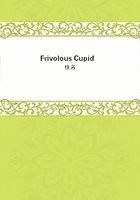
第14章
"She'll probably go all wrong," he said somberly; and of course Icould not tell him that it was of no consequence if she did. He would not have believed me, and would have done precisely what he proceeded to do, and that was to afford Miss Liston every chance of appraising his character and plumbing the depths of his soul.
I may say at once that I did not regret this course of action;for the effect of it was to allow me a chance of talking to Pamela Myles, and Pamela was exactly the sort of girl to beguile the long, pleasant morning hours of a holiday in the country. No one had told Pamela that she was going to be put in a book, and Idon't think it would have made any difference had she been told.
Pamela's attitude toward books was one of healthy scorn, confidently based on admitted ignorance. So we never spoke of them, and my cousin Dora condoled with me more than once on the way in which Miss Liston, false to the implied terms of her invitation, deserted me in favor of Sir Gilbert, and left me to the mercies of a frivolous girl. Pamela appeared to be as little aggrieved as I was. I imagined that she supposed that Chillington would ask her to marry him some day, before very long, and I was sure she would accept him; but it was quite plain that, if Miss Liston persisted in making Pamela her heroine, she would have to supply from her own resources a large supplement of passion. Pamela was far too deficient in the commodity to be made anything of without such re-enforcement, even by an art more adept at making much out of nothing than Miss Liston's straightforward method could claim to be.
A week passed, and then, one Friday morning, a new light burst on me. Miss Liston came into the garden at eleven o'clock and sat down by me on the lawn. Chillington and Pamela had gone riding with the squire, Dora was visiting the poor. We were alone. The appearance of Miss Liston at this hour (usually sacred to the use of the pen), no less than her puzzled look, told me that an obstruction had occurred in the novel. Presently she let me know what it was.
"I'm thinking of altering the scheme of my story, Mr. Wynne,"said she. "Have you ever noticed how sometimes a man thinks he's in love when he isn't really?""Such a case sometimes occurs," I acknowledged.
"Yes, and he doesn't find out his mistake----""Till they're married?"
"Sometimes, yes," she said, rather as though she were making an unwilling admission. "But sometimes he sees it before--when he meets somebody else.""Very true," said I, with a grave nod.
"The false can't stand against the real," pursued Miss Liston;and then she fell into meditative silence. I stole a glance at her face; she was smiling. Was it in the pleasure of literary creation--an artistic ecstasy? I should have liked to answer yes, but I doubted it very much. Without pretending to Miss Liston's powers, I have the little subtlety that is needful to show me that more than one kind of smile may be seen on the human face, and that there is one very different from others; and, finally, that that one is not evoked, as a rule, merely by the evolution of the troublesome encumbrance in pretty writing vulgarly called a "plot.""If," pursued Miss Liston, "someone comes who can appreciate him and draw out what is best in him----""That's all very well," said I, "but what of the first girl?""Oh, she's--she can be made shallow, you know; and I can put in a man for her. People needn't be much interested in her.""Yes, you could manage it that way," said I, thinking how Pamela--I took the liberty of using her name for the shallow girl--would like such treatment.
"She will really be valuable mainly as a foil," observed Miss Liston; and she added generously, "I shall make her nice, you know, but shallow--not worthy of him.""And what are you going to make the other girl like?" I asked.
Miss Liston started slightly; also she colored very slightly, and she answered, looking away from me across the lawn:
"I haven't quite made up my mind yet, Mr. Wynne."With the suspicion which this conversation aroused fresh in my mind, it was curious to hear Pamela laugh, as she said to me on the afternoon of the same day:
"Aren't Sir Gilbert and Audrey Liston funny? I tell you what, Mr. Wynne, I believe they're writing a novel together.""Perhaps Chillington's giving her the materials for one," Isuggested.
"I shouldn't think," observed Pamela in her dispassionate way, "that anything very interesting had ever happened to him.""I thought you liked him," I remarked humbly.
"So I do. What's that got to do with it?" asked Pamela.
It was beyond question that Chillington enjoyed Miss Liston's society; the interest she showed in him was incense to his nostrils. I used to overhear fragments of his ideas about himself which he was revealing in answer to her tactful inquiries. But neither was it doubtful that he had by no means lost his relish for Pamela's lighter talk; in fact, he seemed to turn to her with some relief--perhaps it is refreshing to escape from self-analysis, even when the process is conducted in the pleasantest possible manner--and the hours which Miss Liston gave to work were devoted by Chillington to maintaining his cordial relations with the lady whose comfortable and not over-tragical disposal was taxing Miss Liston's skill. For she had definitely decided all her plot--she told me so a few days later.